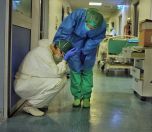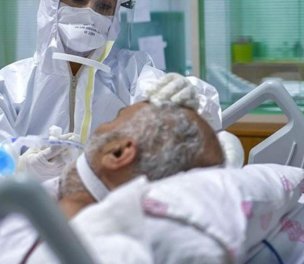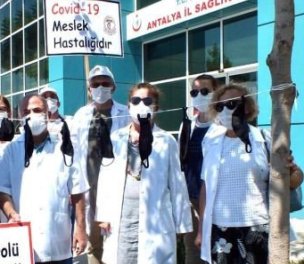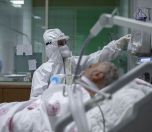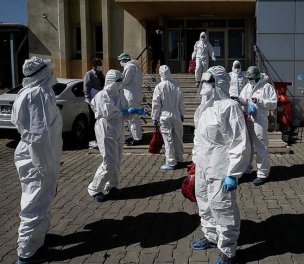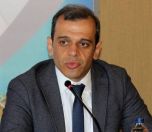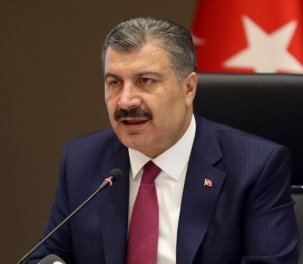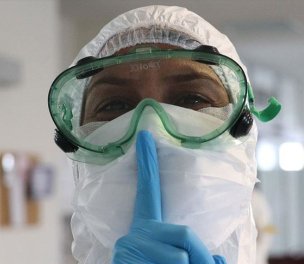* Photo: Twitter
Click to read the article in Turkish
The survey below was conducted in September 2019.
Seven out of 10 people got a consumer loan (69.1 percent).
One out of six people is on loan tracking (16.5 percent).
One out of six people view their economic conditions as bad (16.2 percent), three out of five see themselves as "middle class" (62.9 percent).
One out of two people live in their own house (48.9 percent).
One out of two people have problems at home due to economic hardships (46.4 percent).
Four out of five people cannot save money (79.3 percent).
One out of four people have a chronic disease (23.6 percent).
One out of two people think that they can spend very little time with their families (53.2 percent).
Their most frequent activity is visiting their relatives. They rarely go to see a film or theater play. Their level of social activity was found "highly low."
One out of three people say "I am generally content with life" or "I am very content" (33.5 percent).
One out of five people is happy with their work conditions (18.9 percent).
Three out of five want to change the place where they work (63.4 percent).
One out of two have work-related psychological problems (45.5 percent).
One out of 10 people use antidepressants (12 percent).
Three out of five people chose this profession willingly (60.2 percent) and seven out of 10 people say that they will get another job if they have the chance (70.5 percent); it was commented that "they were having a collapse in terms of their choice of profession and willingness to continue with it."
The three most frequently expressed complaints about their working conditions are poor working conditions, economic dissatisfaction (low wages, unjust and insufficient rolling capital) and injustice (appointment of executives without taking merits and competence into account, clientelism, etc.).
But who are they? They are health workers* in Turkey. The members of the "health army" that the Minister of Health, in a tweet on August 14, called on people to support by observing the rules!
***
The above survey was conducted around a year ago. Just before when you find the results bad/very bad, think that it was "a study carried out against the government" and do not trust the results, let me tell you the name of the institution that conducted the survey as well as its address: SASAM Institute (Sağlık-Sen Strategic Research Center).
It has been a year since then. What do you think? Do you think there is any improvement in the above "state and course of affairs"? Do they stay as they are? Or has everything got even worse in a year?
Does it matter? It matters more than ever before. Because this "army" lived through March, April, May 2020, they are now going through June, July and August, without even finding time to breathe much the same way, and they will enter the fall-winter in pandemic conditions.
As data for this, the recent weeks have seen news suggesting an increase in the number of physicians who want to retire or quit their jobs. The veracity of this information can be called into question, it can be regarded as "the unfairness of extending the particular to the general"; however, let's not ignore the above survey results: Health workers are "having a collapse in terms of their choice of profession and willingness to continue with it."
To this, we can also add the subheadings of the 5th Month Evaluation Report shared by the Turkish Medical Association (TTB) on August 14:
Since April 29, it has not been possible to get information about the infected healthcare workers from the Ministry of Health.
COVID-19 has still not been recognized as an occupational disease.
The lives of the ones left behind by deceased health workers should be guaranteed.
Personal Protective Equipment (PPE) should be provided adequately and spare ones should be provided constantly.
Health workers are still not tested as a risk group.
The health workers employed in the public sector cannot get additional payment to a large extent and the ones working in the private sector get their progress payment either very belatedly, in instalments or "curtailed."
The health workers who are not physicians are forced to have unpaid leaves, the workload is increasing a lot.
Ahead of autumn, health workers are tired, hurt and exhausted.
***
Let's not panic, let's think calmly... Let's put aside the word "army" and try to figure out how we can "increase the health workers' ability to struggle."
The medical profession is usually associated with "devotedness" and health workers are expected to act in line with high ethical standards. The rightfulness of this expectation is understandable and it is mostly based on an "unnamed social contract." One of the leading conditions for meeting this expectation is to ensure that the ones that they "leave behind" are safe.
As we see above, we are talking about a "team" who are in economic trouble and have problems at home as a result of this and, to top it all, they think of changing their workplaces due to working conditions and have work-related psychological problems. Besides, we know how the existing/remaining integrity of the team has been undermined by the policies of the government, especially in the last 3-4 months.
It is possible to give examples of what kind of a policy was implemented to wage wide-scale struggles such as a pandemic in the poorest/deprived periods in this land. Though it is not similar, it can still be remembered how epidemic diseases were combatted in the first years of Republican era.
It is quite obvious that increasing the medical team's ability to struggle will not be enough in itself. The team who run and manage the struggle against the pandemic are expected to abide by some criteria such as the use of scientific methods, openness, participation, meritocracy and competence. Is it enough? No, it needs to be conducted based on a proper health organization with public preferences.
Otherwise?
We do not need otherwise! We are already going through it.
That health workers cannot survive this winter unfortunately means a disaster for the public health. (EB/RT/SD)
* Of participants of the survey; 58 percent are women and 42 percent are men. While the education level of 12.9 percent is high school or below, 22.9 percent are holders of two-year university degrees, 52.3 percent have bachelor's degrees, 11.9 percent have a MA/PhD degree.
23 percent are single, 72.6 percent are married and 4.5 percent are divorced. Average age is 37±8.5. 4 percent of participants are physicians, 34.1 percent are nurses, 8.9 percent are midwives, 19.1 percent are health technicians, 10.2 percent are health clerks, 13.5 percent are administrative clerks and 10.2 percent are from other occupational groups.While 40.8 percent work in public hospitals, 10.2 percent work in university hospitals, 3.5 percent in emergency services, 4.1 percent in oral and dental health centers, 4.8 percent in city hospitals and 18 percent in other institutions.
75.8 percent of the participants provide health services, 15.8 percent administrative services, 3.5 percent technical services and 4.9 percent assisted services. While 56.8 percent do not work on call/ at night, 18.3 percent do it for 72 hours or less, 14.3 percent for 73-130 hours and 10.1 percent over 130 hours.




.jpg)

